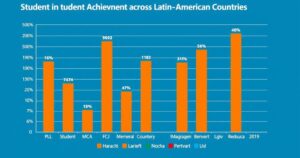Bolivia’s Crypto Market Surges While Chile Rejects Bitcoin
This week’s Latam Insights explores Bolivia’s rising cryptocurrency adoption following the repeal of a ban, contrasting with Chile’s firm rejection of Bitcoin as a reserve asset. Additionally, Bolivian attorneys propose using Tether’s USDT to bolster the economy amid a dollar shortage.
This week’s edition of Latam Insights highlights significant developments in the cryptocurrency landscape of Latin America, particularly focusing on Bolivia and Chile. Following the repeal of a nationwide ban, Bolivia experiences a surge in cryptocurrency adoption, evidenced by a 112% increase in trading activities, with over 252,000 individuals reportedly engaging in digital asset transactions. Meanwhile, the Central Bank of Chile has firmly dismissed the notion of incorporating Bitcoin or other cryptocurrencies into its reserve assets, reaffirming its commitment to maintaining economic stability with traditional foreign reserves. In a separate initiative, Bolivian legal professionals have proposed the introduction of Tether’s USDT as a key index asset to stimulate the economy, which has been hindered by a fixed dollar exchange rate and a shortage of physical dollars. These developments reflect distinct approaches to cryptocurrency in the region and their potential implications for economic revitalization.
The Bolivian cryptocurrency market has gained momentum in recent months following the lifting of a blanket ban that previously restricted banking and payment institutions from facilitating cryptocurrency transactions. This legislative change has spurred significant interest and engagement in digital assets. Conversely, the Central Bank of Chile maintains a more cautious stance toward cryptocurrencies, underscoring ongoing debates about their legitimacy as reserve assets. Central banks are tasked with ensuring economic stability, and Chile’s refusal to adopt Bitcoin as a reserve reflects concerns regarding cryptocurrencies’ volatility and regulatory challenges. Furthermore, the proposal from Bolivian attorneys to utilize USDT as an index asset is an innovative response to the country’s economic challenges stemming from currency restrictions.
In summary, Bolivia is emerging as a leader in cryptocurrency adoption in the region, with substantial growth recorded since the legal changes. While the Central Bank of Chile remains resolute in its rejection of Bitcoin as a reserve asset, the innovative proposals from Bolivian legal experts suggest a proactive approach to using cryptocurrencies to address local economic issues. These developments underline the evolving dynamics of cryptocurrencies in Latin America, with each country adopting distinct strategies based on their economic contexts.
Original Source: news.bitcoin.com





